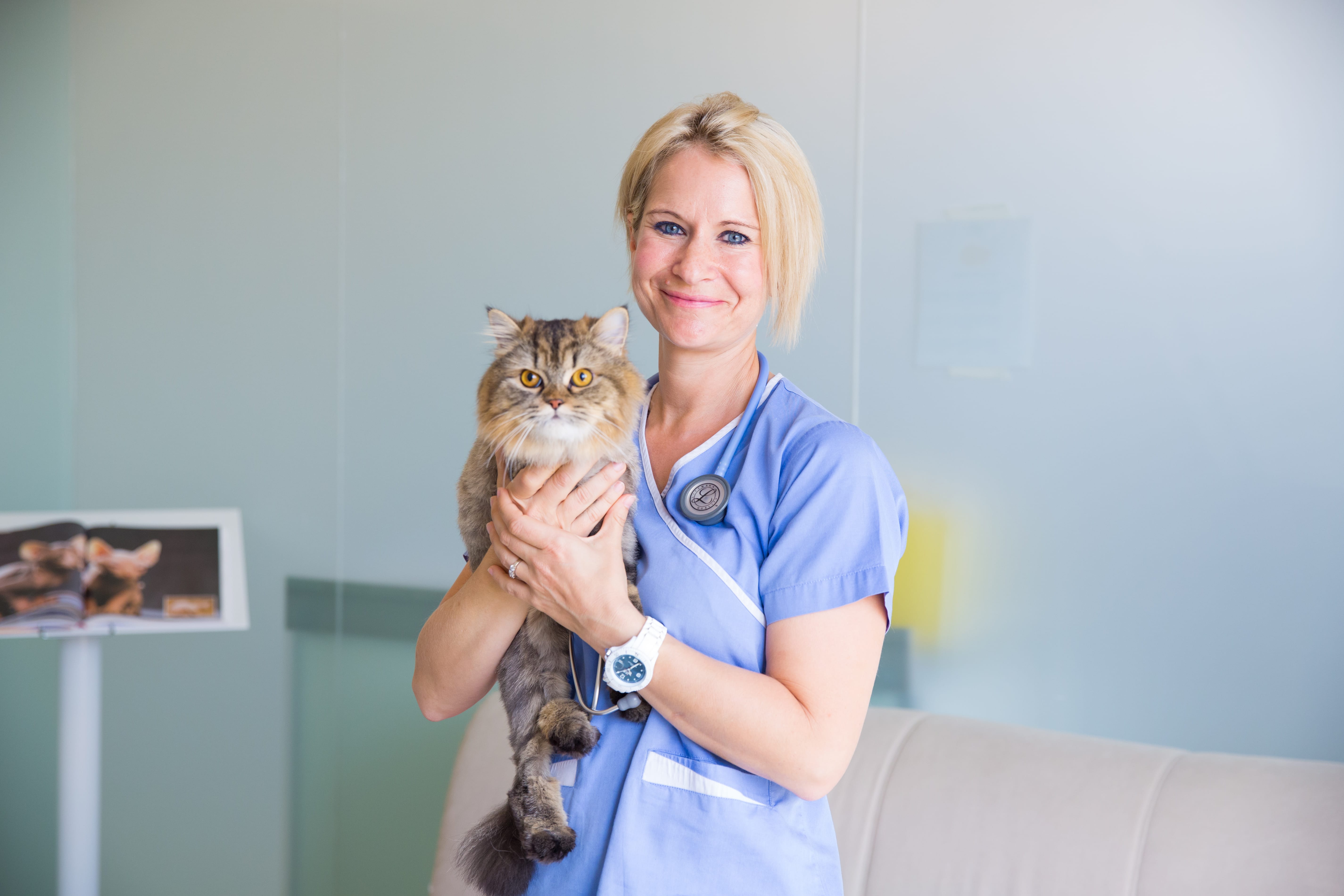
Dr Katrin Jahn from the German Veterinary Clinic in Abu Dhabi talks about pet ownership and shares some useful information for new pet owners.
Some helpful notes…
Climate
The climate in Abu Dhabi is very hot, especially in summer with temperatures rising to above 40C, with high humidity.
- Walk your dog in the early morning or evening.
- Take plenty of water with you on walks.
- Never leave your dog alone in the car.
- If you need to leave the dog in the house please leave the air conditioning on – the temperature should be as comfortable as you would want for yourself.
- Gardens should have a good shaded area and a water hose in the garden is also useful for cooling a dog down after a walk.
- Heat stroke can happen very quickly so please take all precautions. If your dog becomes too hot and gets distressed on a walk you need to cool him/her down using cold water, or cool towels, and take him/her to a vet as soon as possible.
- Cats can also suffer from the warmer climate and many people have both their dogs’ and cats’ coats clipped short during the summer months.
- We have seen so many pets feel much more comfortable and be more active after a shave or trim. We have a cat and dog groomer at German Veterinary Clinic.
Walking your dog
There are many lovely beaches around which are perfect for dog walking.
- Make sure you know which beaches allow dogs on them and please clean up any dog mess to leave the beach clean for others.
- It is a good idea to hose off sandy feet when home to reduce any irritation from the sand between the toes.
- Don’t forget that sand also becomes very hot during the day and can burn a dog’s paws – another reason for waiting until a cooler part of the day to walk.
- If your dog has very sensitive paws/footpads, we do sell small booties which will protect them in the summer heat.
- There are also lots of parks but some may require dogs to be kept on leads so check in your local area.
Letting cats outside
We have a large population of street cats in Abu Dhabi. There is generally no problem in letting cats out but if you are able to ‘cat-proof’ the garden or compound, this can help prevent straying, or fighting and keep them safer.
- We recommend microchipping and if the cat (or dog) already has a chip it can be registered on the local database.
- Any lost cat or dog that is found will be checked for a microchip and can be returned to the owner promptly if their contact details are registered on the database.
Water
Although we use bottled water for ourselves here, the tap water is considered safe for cats and dogs to drink.
- Due to the hot temperatures, lots of clean water should always be available both inside and outside the house for drinking and also taken on dog walks.
- Some cats don’t naturally drink a lot – in these cases specially designed cat water fountains or turning on taps in the house can help encourage more fluid intake. This is important to avoid dehydration.
- If your cat has ever suffered from urinary or kidney problems, it is especially important to keep them drinking. You can buy pet water fountains at our clinic.
Vaccines
A full set of vaccines will have been required for your pet to enter the UAE.
- These should be kept up to date annually as they will also be required to travel onwards.
- Regular annual vaccines for both cats and dogs are now also mandatory according to the Ministry of Climate Change and Environment.
- Some local kennels will require a kennel cough vaccine to be given before boarding.
- If you are travelling on to a different country please inform us as soon as possible so we can let you know if further injections / boosters / blood tests are necessary.
Parasite control
Intestinal worms, especially tapeworm can be a problem, as many animals are not treated.
- Worming is recommended every month until an animal is 6 months old, then every 3 months thereafter.
- Geckos can carry tapeworm larvae, which is why even indoor cats can pick up worms here.
- Ticks are a massively growing problem in the UAE and there are a few tick-bourne diseases (Ehrlicha, Babesia) that can be caught from them.
- Frontline is no longer effective against the majority of ticks in this country so different products are necessary to protects your pets.
- “Advantix” can be applied to the back of the neck monthly or “Seresto” collars can be worn by dogs, which will protect them for up to 8 months.
- We stock many products for flea control. Fleas are not as common here as in other countries, but you should still check your pet regularly to make sure they are clear.
- Ear mites are very common here, especially in cats. You would notice very itchy ears with a dark brown waxy discharge. They can be treated with a Stronghold or Advocate application to the back of the neck.
- Another common problem here, especially in cats, is Ringworm. This is not a worm but a fungal infection (incidentally, also common in people in UAE). The signs of ringworm include hair loss and scaly or scabby skin. Ringworm is not always itchy. Symptoms in people are usually circular red rings on the skin. We can check for ringworm with a special lamp or by fungal culture and it can be treated by oral liquid and medicated shampoos.
For more information visit our website www.germanvet.ae or email drkatrin@germanvet.ae

